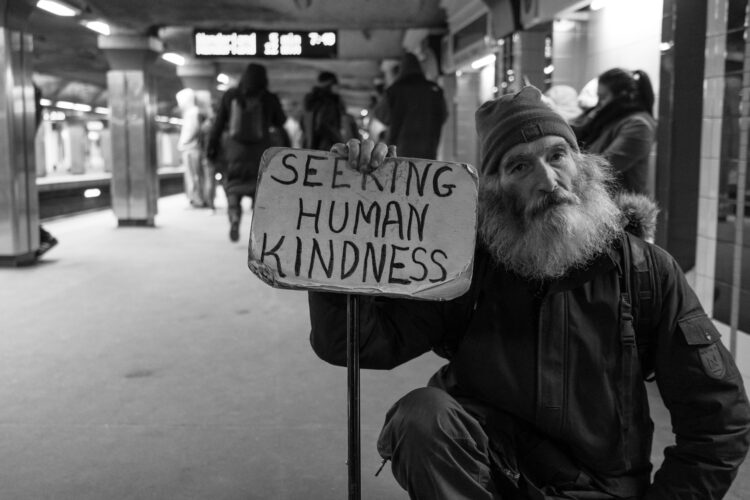We are living in an age when there is a profound clash of world views, the classic western worldview and the modern atheist/agnostic worldview. The latter can accept some aspects of eastern mysticism but not any concrete faith that provides the foundation of ethical norms for society.
Nowhere is this clash of world views more revealed than in the issue of human sexual identity and purpose. It is a window into the whole world view battle.
The foundation of ethics in a biblical worldview is God’s revelation of his will expressed in his law and the teaching of the Bible, theistic revealed ethics. Other societies also intuited that their ethical systems had to be rooted in a transcendent realm, the Chinese, the will of Heaven, the Hindus the laws of ethics and karma rooted in Brahmin, in the Greeks, the realm of the eternal forms which include the Good and the eternal values. The impersonal views of the Greeks end up being more subject to questions and weaknesses (witness the Greek Sophists and skeptics).
There is no foundation for ethics in the modern atheist/agnostic worldview. All is based on the consensus of the society, and its emotive preferences, at a particular time. Nothing holds things back from very bad directions. A very little is taken from the Biblical worldview by Marxists and leftist radicals but with no grounding. That little is that a better world should be sought that is a more equal, humane, and provides greater provision for all, a better world for fewer people. This value of a better more humane world is rooted in the Bible and only societies influenced by the Bible have this ethical orientation See English atheist Tom Holland for this argument. Holland is brutally honest about both the lack of grounding today but embraces the hope that this humane orientation will prevail. In the Bible, all ethics on a human plain is rooted in the value of human beings as created in the image of God. However, an ethic of the survival of the fittest and the serving of an elite by the masses can easily gain ascendency as we saw with Nazism. However, the atheist/agnostic worldview has very little behavioral guard rails. Their views on a more humane order are short-sighted and lead to sorrow and destruction. They seek to cancel those who argue against them. Because there is no objective ground for ethics, emotional preferences reign.
In the Bible’s view, God created human beings in His image and provides the rule book or guard rails that lead to human flourishing. Such guidance is clear on the matter of human sexuality. God created male and female for complimentary identities to be fulfilled in heterosexual and lasting marriage (see Matthew 19 and the teaching of Yeshua on this). Sexual distinction is to be fostered in the way we raised children and intentional biblical social construction is important. The Torah enjoins distinctions of dress as well. Children are raised so the distinction will be attractive and complementary to the opposite sex. The expression of sexuality leads to a bond that is the basis of family life. Family is highly valued as the essential unit to produce a humane society of people who act in ways that are beneficial to the society over the long run. Those very few born without normal sexual organs are to be loved and find a way to choose an identity that will not undercut the norm. Others that do not fit into sexual heteronormality and marriage are encouraged to live single lives serving the kingdom of God with deep friendship and community. (See Matthew 19 and I Cor. 7)
The atheist/agnostic worldview can find no basis to define any human essence. Biology itself does not define gender today. Yes, hormones may lead to opposite-sex attraction for most, but gender is a human social construct. As such sexual and gender identity is fluid and anyone can choose identities according to whatever they feel. Feeling dominates. One must not disagree with their feeling/identity since that is hurtful. Homosexual identity, bi-sexuality, poly amorosos, transgender and every kind of identity is affirmed along with all the sexual expressions that follow therefrom. The only rule is that the adults consent. Yet with the flood of pornography and promiscuity, enforcing consent, is more and more difficult. This is because sexual promiscuity seeks stimulation from breaking rules since “the high” is no longer experienced in normal consent. Violence is and will thus increase. Also, the big argument now taking shape is that children can consent. If they can choose a gender at young ages, why may they not choose sexual experiences; thus argue pedophiles.
It is not an accident that this sexual revolution leads to family breakdown. Family breakdown is a desired end of a contingent of radical leftists. Marx argued that the family fostered inequality. The state needed to raise the children. It is no accident that the founder of Black Lives Matter (an avowed Marxist) argued that they were against fostering the heteronormal family system. The ideal of the radical left is to foster communal child-rearing. We see this today in the teachers’ unions that seek to work with young children on gender issues in secret, not telling parents. They foster the world view of gender fluidity with young children and groom them if they give any indication of sexual questioning, though they are way too young for such decisions on sexuality. The end of all this in a generation will be anti-social adults who are simply not sufficiently bonded to parents and family to become healthy productive and trustworthy citizens. The breakdown of law and civility is certainly a result of great increases in poverty. The correlation between family breakdown and poverty is one of the strongest in social statistics. The state cannot overcome this.
All of this fits a larger world vision to re-create the world around a subjective and chosen vision. Not all of it is incompatible with the Bible but most are. A generation ago, George Wald, the Harvard biologist spoke of “A better world for fewer people.” His nemesis was Julian Simon of the University of Maryland who argued against his population bomb predictions. However, a better world for fewer people means many less people. The more radical desire a world of 500 million people. The abortion agenda fits their desire for a small population world. Decoupling sex from marriage and family is helpful in moving toward that world. Easy access to abortion also fosters the goal. The child in the womb is not in the image of God and can be killed. Libertine sexuality requires easy abortion. However, this is not publicly admitted. We can argue if families should be smaller and population growth limited. But the agenda of the left is quite anti-family.
There is one more very troubling orientation among some in science and history. The human being as given is not sacred, so there is no compelling reason to not recreate a new super race. A bio-engineered human, maybe part robot, is envisioned by Yuval Harari, a professor at Hebrew University who has related to the Davos World Economic Forum and its leader, Claus Schwab, who seeks to foster a one-world order controlled by elites.* It is anti-democratic.
The revolution vision of Herbert Marcuse (An Essay on Liberation), requires pitting ethnic groups against one another and the breakdown of the present order to be replaced by an authoritarian government worldwide that will foster a more equal world for fewer people. Of course, the elite will keep wealth and privilege but will create a more equal order for the masses. If communication is controlled then the masses can have an illusion of democracy, but real control will be in the elite who will move the world to a better world for fewer people, with sexual libertine orientations, few children communally raised, and sexual orientations all embraced toward the end of this “better world.” The danger is that the humane idea will break down in violence to those who do not go along as we see in historic communism. I am quite sure that violence against those who foster a biblical worldview is on the way. Believers stand in the way of what they see as progress.
Unless believers understand this as an anti-Christ worldview and see what we are up against, the battle in prayer, witness, and proclamation will miss the mark. Believers will not be left free to live out their convictions in their own communities, but as in communism in the past, they will be forced to bow to the beliefs of the new world order. Without a massive revival, this direction will continue and will not end well.
*Yuval Harari at the World Economic Forum, quotes
Again, I think the biggest question in maybe in economics and politics of the coming decades will be what to do with all these useless people? The problem is more boredom and how what to do with them and how they find some sense of meaning in life when they are basically meaningless, worthless? My best guess at present is a combination of drugs and computer games as a solution for (most). It’s already happening. I think once you’re superfluous, you don’t have power.
– FROM A TRANSCRIPT AT RIELPOLITIC ALEXANDRA BRUCE, “BRAVE NEW WORLD: YUVAL NOAH HARARI ASK’S, ‘WHAT TO DO WITH ALL THESE USELESS PEOPLE?’,” (MAY 17, 2022)
Harari goes on to outline a transhumanist vision of the future in which brain-computer interfaces make our footedness in the material world obsolete, human relationships become meaningless due to artificial substitutes, and the poor die but the rich don’t.
Of course, the biblical view is joy and creativity with worship forever. No boredom forever.









